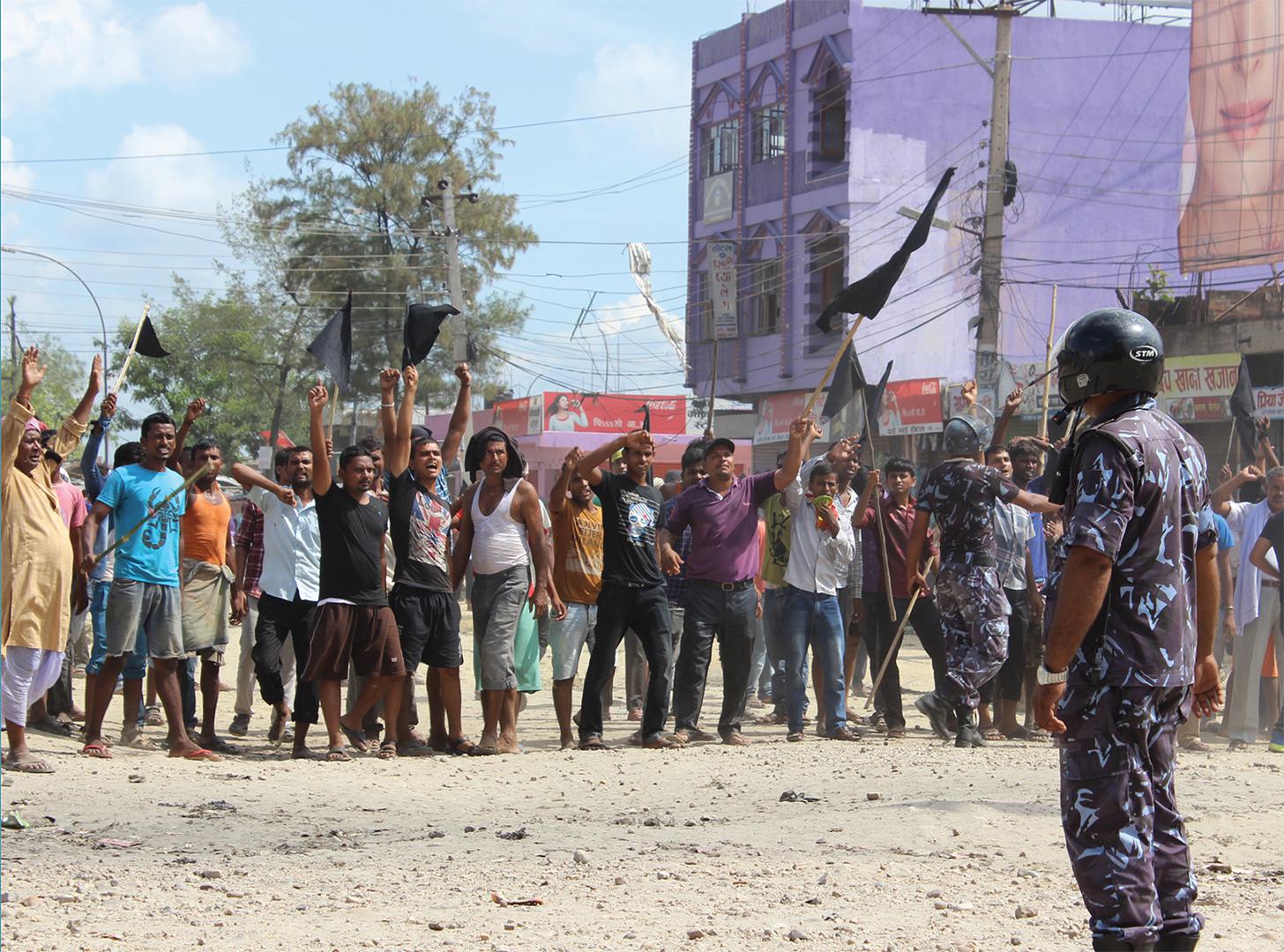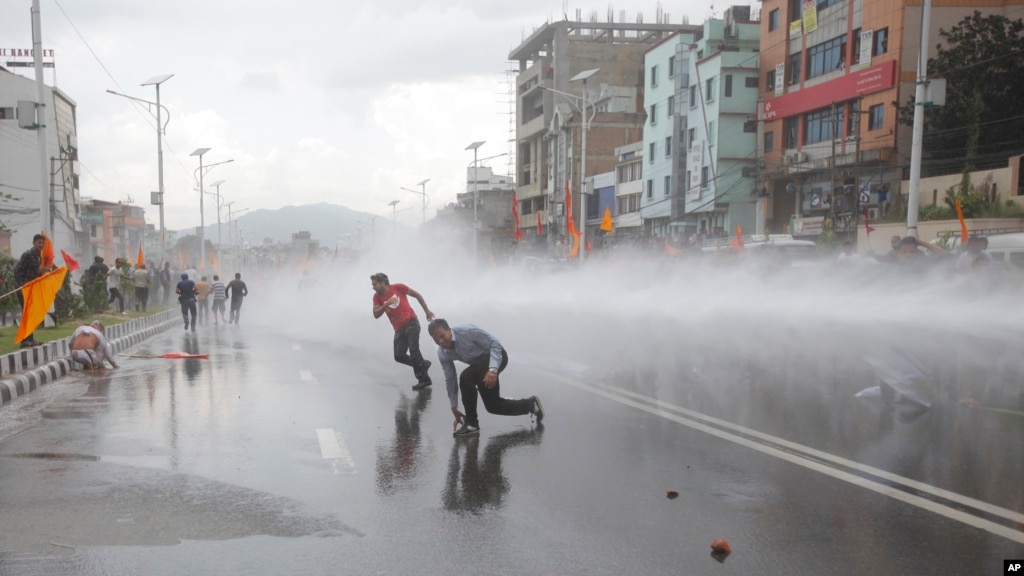|
Alabama Judge Tells Defendants To Give Blood To Avoid Jail
By Samuel Miller
Impunity Watch Reporter, North America and Oceania
MARION, ALABAMA, United States of America — The SPLC filed a judicial ethics complaint against an Alabama judge who forced people unable to pay court fines and fees to give blood or face jail time. The judge’s announcement was made to dozens of defendants in a packed courtroom to deal with court fees.

Some of the 500 defendants gave blood to avoid jail, but their debt remained.
Perry County Circuit Judge Marvin Wiggins threatened defendants in his court with jail on September 17. Judge Wiggins noted that the Sheriff had enough handcuffs for those unable to pay and unwilling to donate blood, according to the complaint filed with the Judicial Inquiry Commission of Alabama.
According to the SPLC, Judge Wiggins said in a recording, “If you do not have any money and you don’t want to go to jail, consider giving blood today.”
The offenders were to be given a $100 voucher that would go toward their fines and fees for misdemeanor and traffic crimes. Wiggins said to consider the option of giving blood “a discount rather than putting you in jail.” However, no one who donated blood received any “discount” on their court debt; they simply received a reprieve from being thrown in jail.
Most of the people in the courtroom still owed thousands of dollars to the court, even after years of making payments, according to the complaint. Virtually every case included fees that indigent defendants had been charged to recoup money for their court-appointed counsel
Without speaking to the judge about their financial situation, many indigent defendants gave blood out of fear of going to jail. The complaint outlines several ethics violations, including failure to demonstrate professional competence and failure to uphold the integrity of the law.
Some lawyers have questioned the constitutionality of it all.
In its complaint, the SPLC has claimed Judge Wiggins’ violated both Alabama statutory law and constitutional law.
“By jailing people for their inability to pay, the city violates their 14th Amendment right to due process and equal protection under the law. The warrantless arrests violate Alabama law and the Fourth Amendment protection against unreasonable searches and seizures. The arrests also violate individuals’ right to counsel, protected by the Sixth Amendment.”
“People who couldn’t pay their court debt with cash literally paid with their blood,” said Sara Zampierin, SPLC staff attorney. “This is a shocking disregard for not only judicial ethics but for the constitutional rights of defendants.”
The Judicial Inquiry Commission could recommend that Wiggins face ethics charges in the Alabama Court of the Judiciary.
For more information, please see:
BBC News — Alabama judge orders defendants to give blood to avoid jail – 20 October 2015
CBS News – Judge to defendants: To avoid jail, pay court fees, or give blood – 20 October 2015
NPR — Alabama Judge Accused Of Telling Offenders To Give Blood Or Go To Jail – 20 October 2015
Reuters — Alabama judge accused of telling debtors to give blood or face jail time – 20 October 2015
SPLC — SPLC ethics complaint: Alabama judge forced defendants with court debt to give blood or go to jail – 20 October 2015
Time — Alabama Judge Tells Offenders to Give Blood or Face Jail – 20 October 2015
Ohio Delays Executions Until 2017
By Samuel Miller
Impunity Watch Reporter, North America and Oceania
COLUMBUS, OHIO, United States of America — Ohio has announced it is delaying executions until 2017 at the earliest as the state struggles to acquire the drugs used in lethal injections. The postponement of capital punishment means 12 death row inmates who were scheduled to die in 2016 are being given a temporary reprieve.

Executions in the state have already been postponed for almost two years due to drug shortages.
In an agency press release Monday, the Ohio Department of Rehabilitation and Corrections detailed the justification for the decision:
“The Department of Rehabilitation and Correction continues to seek all legal means to obtain the drugs necessary to carry out court ordered executions, but over the past few years it has become exceedingly difficult to secure those drugs because of severe supply and distribution restrictions.”
Ohio, like many states, has been forced to find new drugs after European-based manufacturers banned US prisons from using their products in executions on moral and legal grounds.
The DRC said it needed extra time to buy supplies of sodium thiopental and pentobarbital from overseas, or from small-scale drug manufacturers called compounding pharmacies. Ohio said in January that sodium thiopental and pentobarbital will be the only drugs used in its lethal injection cocktail.
State officials obtained an import license from the US Drug Enforcement Administration to buy drugs from overseas. However, they were subsequently warned by the Food and Drug Administration that if they did so, they would be violating a federal law barring the importation of lethal injection drugs unless the purchase had been explicitly approved by the FDA.
Ohio lawmakers even passed an execution secrecy law designed to encourage compounding pharmacies to make lethal injection drugs, but the American Pharmacists Association has been reluctant to approve the manufacture and sale of such drugs.
Franklin County Prosecutor Ron O’Brien said Ohio could speed up its executions by changing its method of execution. The state could use the electric chair, hanging, or even a firing squad, but these changes would require state lawmakers to pass a bill and the governor would need to sign it.
The state has been postponing all planned executions since the administration of a faulty lethal injection caused a death row inmate to suffer in agony for 25 minutes before dying. In January 2014, Ohio executed Dennis McGuire with an untested lethal injection containing the controversial sedative midazolam, which malfunctioned and led to an outcry from concerned citizens and lawmakers.
The next execution in the state is currently set for January 2017.
For more information, please see:
BBC News — Ohio puts executions on hold due to drug shortage – 20 October 2015
Columbus Dispatch — Ohio to delay executions until 2017 – 20 October 2015
Free Press Journal — US state postpones executions over lack of lethal drugs – 20 October 2015
NBC — Lack of execution drugs means delay for inmates on death row – 20 October 2015
RT — Ohio delays executions until 2017 over drug shortage – 20 October 2015
Sky News — Ohio Delays All Executions To 2017 Over Drugs – 20 October 2015
Human Rights Watch Releases Report on Nepal Atrocities
By Christine Khamis
Impunity Watch Reporter, Asia
KATHMANDU, Nepal –
Human Rights Watch has released a report on the human rights violations that occurred during protests this year in the Terai region of Nepal. The report calls for Nepali authorities to investigate the abuses and to bring those responsible for the abuses to justice.
The Human Rights Watch report, entitled “‘Like We Are Not Nepali’: Protest and Police Crackdown in the Terai Region of Nepal”, highlights Human Rights Watch’s investigation into the killings of 25 people, including 16 civilians and 9 police officers.
At least 45 people were killed during protests from August to September 2015. Among the atrocities committed were extrajudicial killings of protesters by police, killings of children, and the killings of police officers at the hands of protesters.

While investigating abuses in Nepal, Human Rights Watch visited five districts in Nepal and recorded eyewitness accounts of police abuses and violence by protesters. Human Rights Watch did not find any evidence indicating that any of those killed were posing a threat at the time of their deaths.
Police abuses included invading homes to beat occupants, beating innocent bystanders, killing non-violent protesters, using racial insults, and making death threats against civilians. Two eyewitnesses saw a police officer open fire into a hospital. In another eyewitness account, a 14 year-old protestor was shot in the face by police while an officer stood on his legs. Doctors’ reports from the examination of his body corroborated the account of how the boy died.
Section 8, article 58(3) of Nepal’s Armed Police Force regulation allows police officers to use “necessary or final force in order to defend self, maintain law and order, and to arrest the attacker” if they are attacked or obstructed from their duties. Nepal’s Home Ministry denies that police have used excessive and unnecessary force and states that the Human Rights Report was prepared in a biased manner.

Protesters have also grown violent. In one instance, protesters in Tikapur, a city in western Nepal, beat eight police officers to death with spears and sticks spiked with nails.
There are ongoing protests in Nepal led by ethnic groups, primarily the Tharus and Madhesis, who are unhappy with Nepal’s new constitution. After years of political stalemate, Nepal’s political parties agreed on a constitution, which was ratified in September 2015. Ethnic minority groups such as the Tharus and Madhesis then began to protest against the constitution because they believe that it abrogates previous agreements made with their communities and delineated federal provinces that do not afford them adequate representation as citizens.
Power in Nepal is concentrated in the Pahadi, a group populating the Himalayas and the surrounding areas. The Madhesis and Tharus make up about a third of Nepal’s population, and they generally possess less wealth and education that the Pahadis.
Khadga Prasad Sharma Oli became Nepal’s new prime minister on October 12, replacing Sushil Koirala. Brad Adams, the Asia director for Human Rights Watch, has stated that “Nepal’s new leadership should take immediate steps to stem the tide of abuse that has overtaken Nepal…the government needs to order investigations, and publicly call on all security forces to desist from any excessive use of force.”
For more information, please see:
Human Rights Watch – ‘Like We Are Not Nepali’: Protest and Police Crackdown in the Terai Region of Nepal – 16 October 2015
Human Rights Watch – Nepal: Investigate Deaths During Terai Protests – 16 October 2015
The New York Times – Report on Nepal Protests Details Grisly Violence – 16 October 2015
Voice of America – HRW: Nepal Must Investigate Constitution Protests Killings – 16 October 2015
Polish President Warns Government About Refugees Bringing Diseases
by Shelby Vcelka
Impunity Watch Desk Reporter, Europe
WARSAW, Poland–
Poland’s conservative President Andrzej Duda said Wednesday that the Polish government should take steps to protect its citizens from Middle Eastern refugees bringing in “possible epidemics.” Duda told a local Polish new channel that the health and safety of Polish citizens was of utmost importance, rather than the refugees. He also added that if the government was willing and able to accept the refugees, they should take any measure necessary to protect the Polish people.

The comments by Duda, whose role is largely ceremonial in government, closely resemble remarks made by the leader of the Law and Justice Party, Jaroslaw Kaczynski. Duda is a member of the right-wing Law and Justice Party, which is expected to win the elections on October 25th.
Speaking outside a refugee center, Kaczynski spoke about how the refugees had brought in “all kinds of parasites which are not dangerous in their own countries but which could prove dangerous for the local populations.” He later wondered how the Polish government expected to protect Polish citizens from these transient diseases.
Both Duda and Kaczynski’s comments have been condemned internationally, by members of the Polish government, and by the local media as evocative of the hate speech spewed by the Nazis during the Second World War. During that time, the Nazis said the Jewish people had typhus, and used that line of reasoning to force them into ghettos.
The World Health Organization (WHO) said there is no connection between migration and infectious diseases, and these diseases can exist independent of migration. “The risk for importation of exotic and rare infectious agents into Europe, such as Ebola, Marburg and Lassa viruses or Middle East respiratory syndrome [MERS], is extremely low. Experience has shown that, when importation occurs, it involves regular travellers, tourists or health care workers rather than refugees or migrants,” a September report from the WHO said.
Poland has taken its time in accepting refugees, but has agreed to accept 5,000 of the 120,000 migrants to be shared between the 28 member states of the European Union. Poland was initially agreed to take in 2,000 refugees, but later upped the number. Although support for asylum for refugees is high, heavily Catholic Poland has some anti-Muslim sentiments that affect its ability to take in more refugees.
For more information, please see—
The Globe and Mail–Ex-Polish PM slammed for comments migrants carrying diseases to Europe— 14 October 2015
Human Rights Watch– Dispatches: Welcoming Voices from Poland on Refugees— 15 October 2015
Al-Jazeera–Poland’s president warns of refugees bringing epidemics— 18 October 2015
Channel NewsAsia– Migrants may bring epidemics, warns Polish president— 18 October 2015